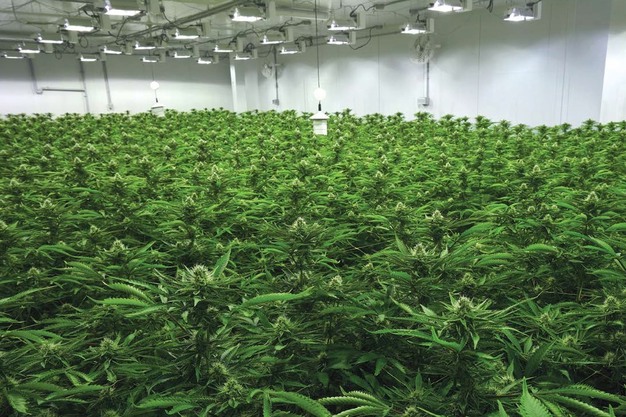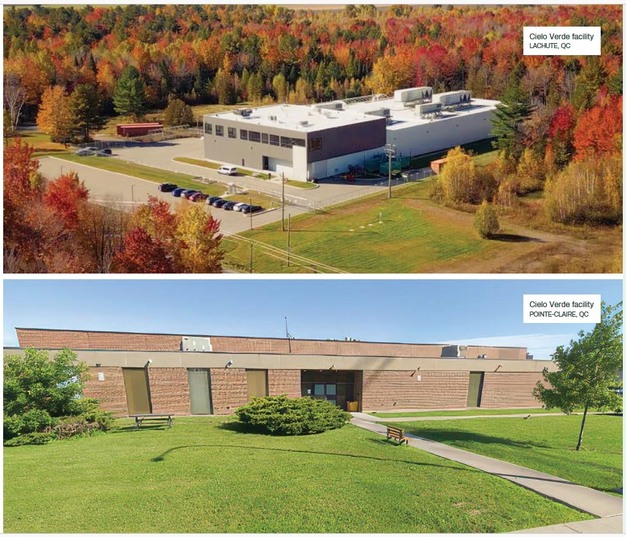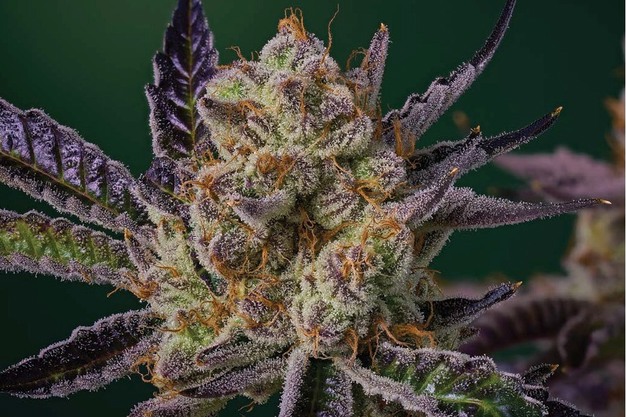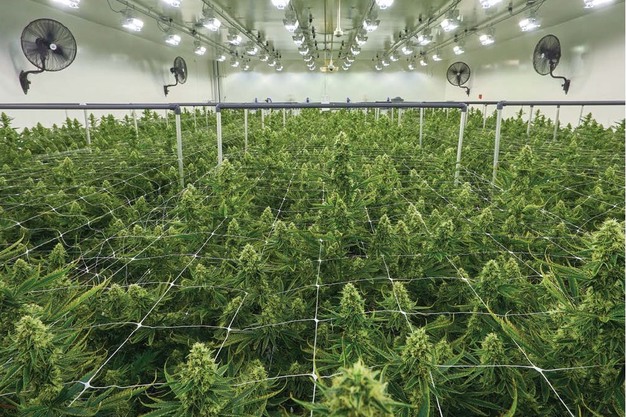When Cielo Verde launched, the goal was simple: produce quality indoor cannabis for the Canadian market. In such an ever-moving sector, however, things are not bound to stay the same for long. "Over the last year and a half, we've shifted almost entirely toward exports," says Barry Laxer, President of the Quebec-based company. "Canada's market is, let's say, complicated."
The company's first export deal was with Israel, where Cielo Verde built up a "strong regulatory relationship," the kind of phrasing that implies paperwork, patience, and the occasional migraine. Germany followed, which is not that surprising considering the increasing volumes of cannabis imported into the Northern European country recently. "The German medical cannabis market is certainly growing and represents a good opportunity for us," Barry says.
 © Cielo Verde
© Cielo Verde
Two indoor sites, and a lot of backstory
Cielo Verde operates out of two facilities in Quebec: one in Montreal, not far from the airport, and one in Lachute, about 30 km north of the other site. Both were acquired in 2020 from Aurora during a phase when the larger player was offloading five sites. Barry, then fresh out of another cannabis venture, caught wind of the sale just in time. "It was one of those right-place-right-time moments," he says. "We got them for less than the cost of building new ones, but they came with baggage."
Each facility houses 11 flower rooms, plus dedicated veg and mother spaces. Growing is done in rockwool with fully automated irrigation, Priva in Montreal, Damatex in Lachute, both tied to centralized control systems. But cannabis, as it turns out, doesn't care for off-the-shelf commercial HVAC. Those facilities were built during the first phase of the cannabis industry, when cannabis-specific engineers and builders were more of a unique occurrence than a rarity. This meant that some of the equipment that went into those early facilities wasn't designed for cannabis, or even agriculture, for that matter.
 © Cielo Verde
© Cielo Verde
"The Lachute system was designed for large buildings, not agriculture. In an office tower, a 3-4°C swing in a day isn't a big deal. In cannabis, 1°C can mess everything up," Barry says. "It took about a year and a half of reprogramming and tweaking to get it dialed in."
A genetic balancing act
Cielo Verde currently runs 10 commercial strains, with each room devoted to a single cultivar. "Every strain wants something different, light, humidity, airflow. We tailor each room to the genetic," says Barry.
Seeds are sourced through Canadian distributors and licensed importers. "It's Canada, so of course you can't just go buy seeds. They must come from licensed Canadian breeders or distributors; you cannot import them," he explains. The team hunts phenos, logs data, and has built up an internal seed bank. "Hopefully, the rules around R&D imports will relax soon."
 © Cielo Verde
© Cielo Verde
The company only grows feminized plants, though even then, some strains have turned out to be less than cooperative. "We've learned the hard way that some 'feminized' strains can still herm. So now, early detection is key."
Domestic pressure, international priorities
The Canadian market, especially outside Quebec, can feel like a never-ending product call cycle. "Consumers expect new products every quarter. There's always a rush to whatever's new or flashy," he says. "Some strains last two or three years, but most get pushed aside pretty quickly, even if they're great."
And yet, quality is subjective. "We've released products we thought were incredible that didn't land. Others outperformed expectations. At the end of the day, people develop brand loyalty, or they just chase THC numbers, or whatever's trending on social. You can't control it."
 © Cielo Verde
© Cielo Verde
Focused on growth
With 10 tons of annual capacity and room to expand on 40 acres in Lachute, Cielo Verde is charting its growth carefully. "We're not trying to be everywhere," says Laxer. "We're already active in Israel, starting with Germany, and now exporting to the UK. Poland and Switzerland are on our radar, but we're taking it slow." His take on international expansion is very pragmatic. "It's like weddings. You can't say yes to every invite. Pick the ones you can show up for, and do it properly."
With the company being built upon the remnants of a business that flew too close to the sun too soon, Barry and Cielo Verde are very much aware that expectations need to match the reality of the operation. And while cannabis may hold that aura, greatly influenced by pop culture, it's crucial to handle the business side of things the way a business is meant to be run. "Cannabis isn't a pot of gold," he says. "It's a product. You've got to be good at what you do and make sure the business works. That's the real challenge."
For more information:
Cielo Verde ![]()
www.cieloverde.ca
